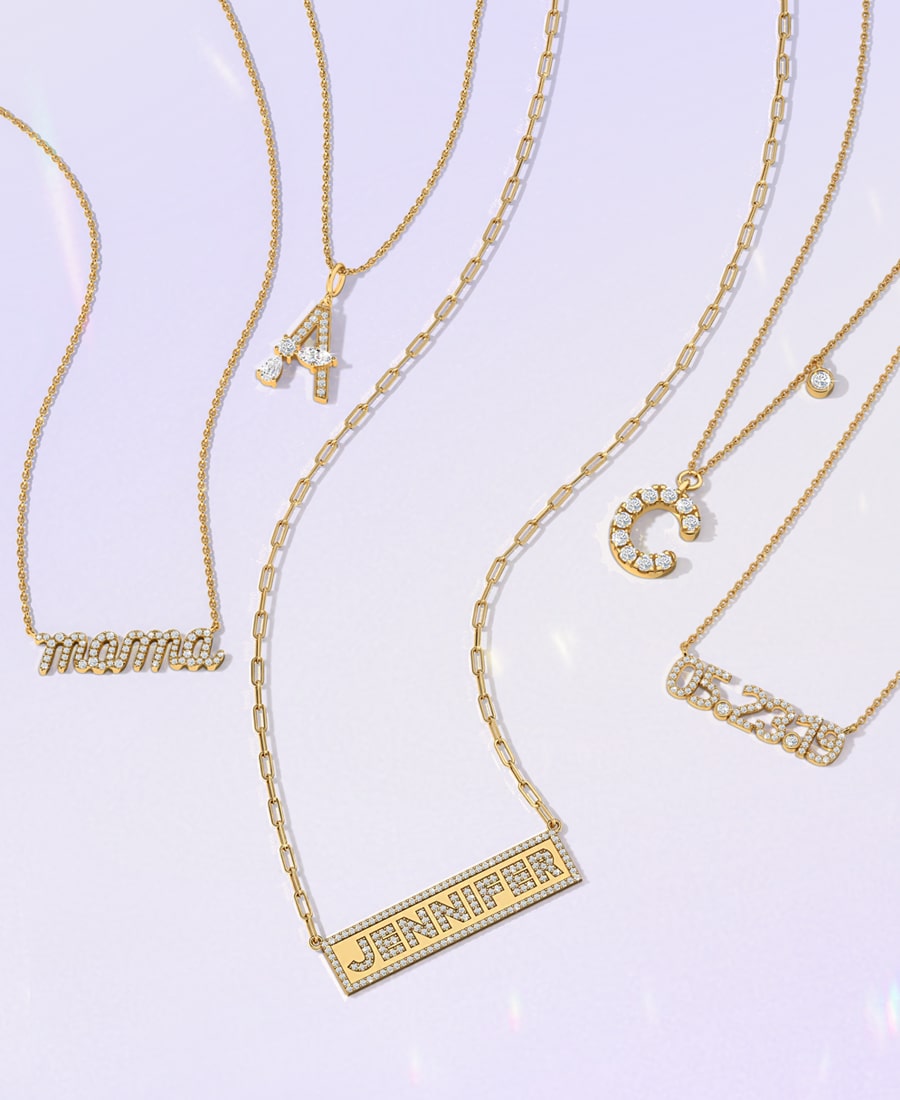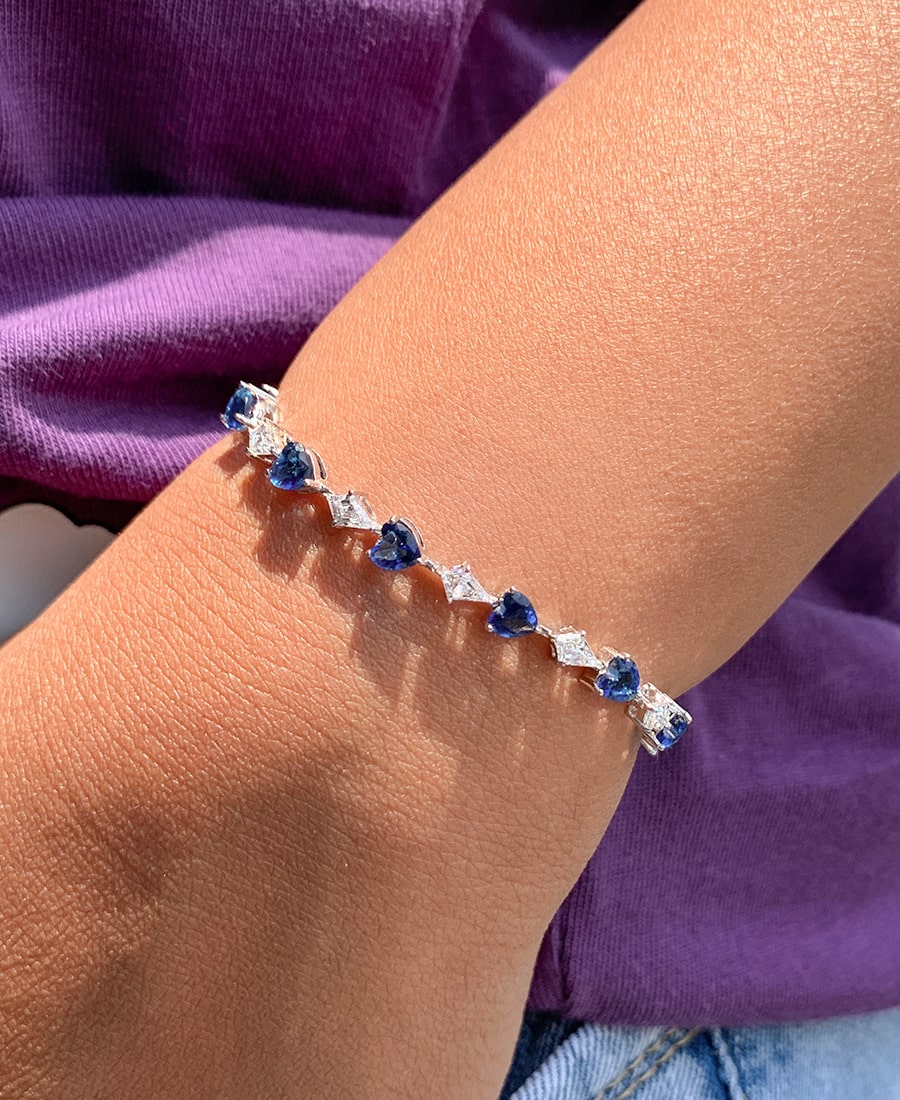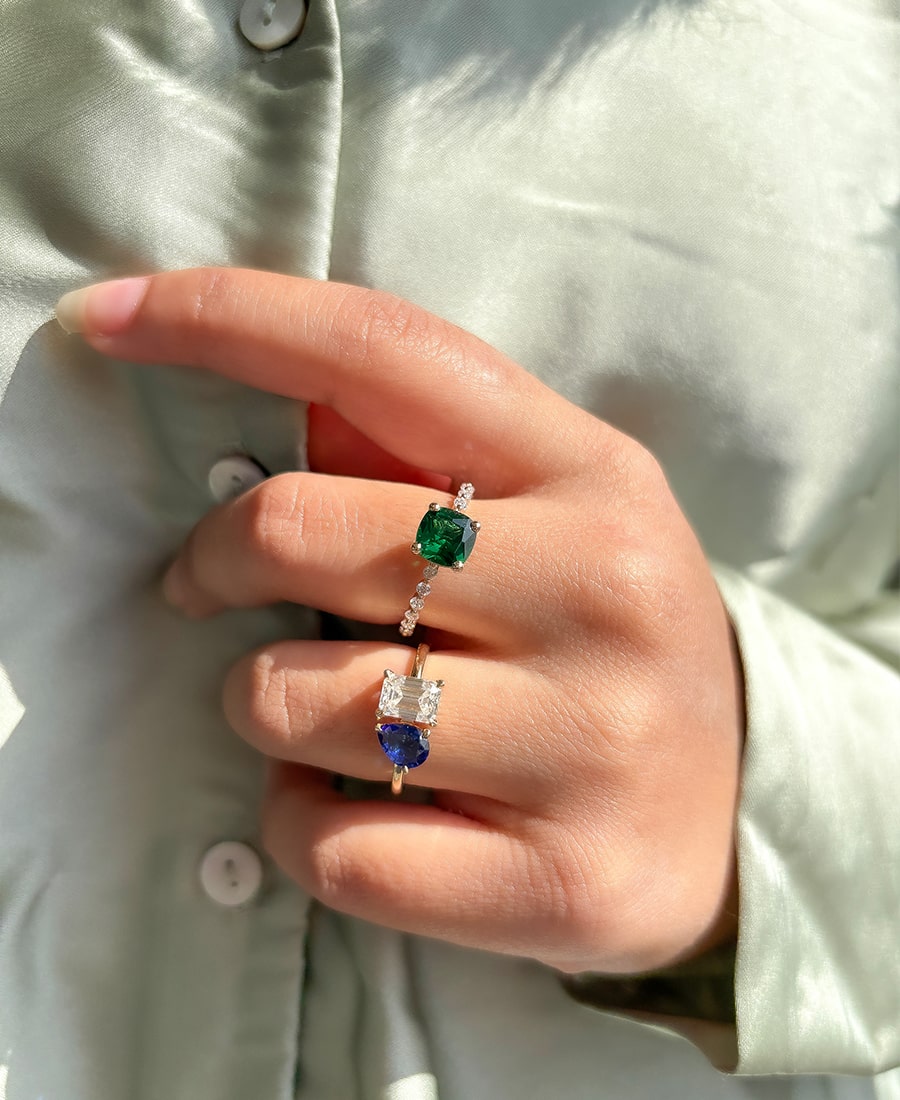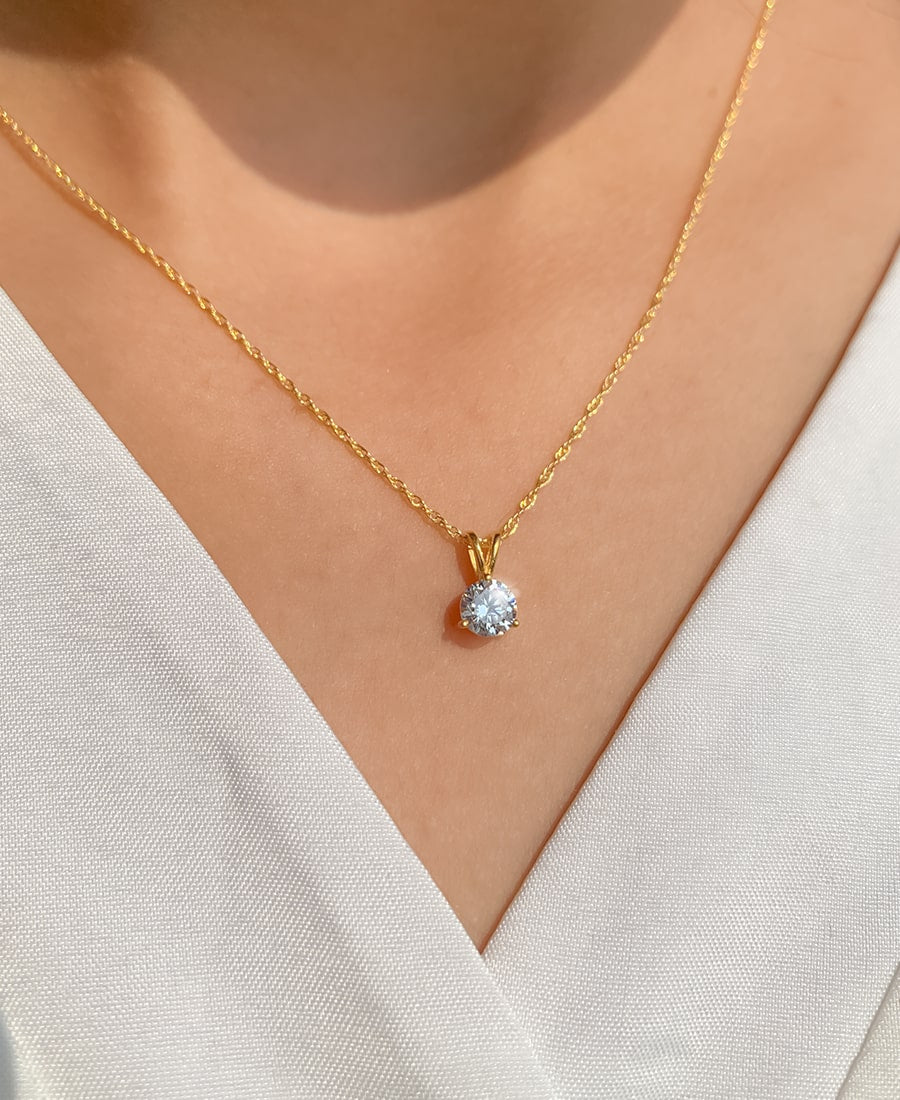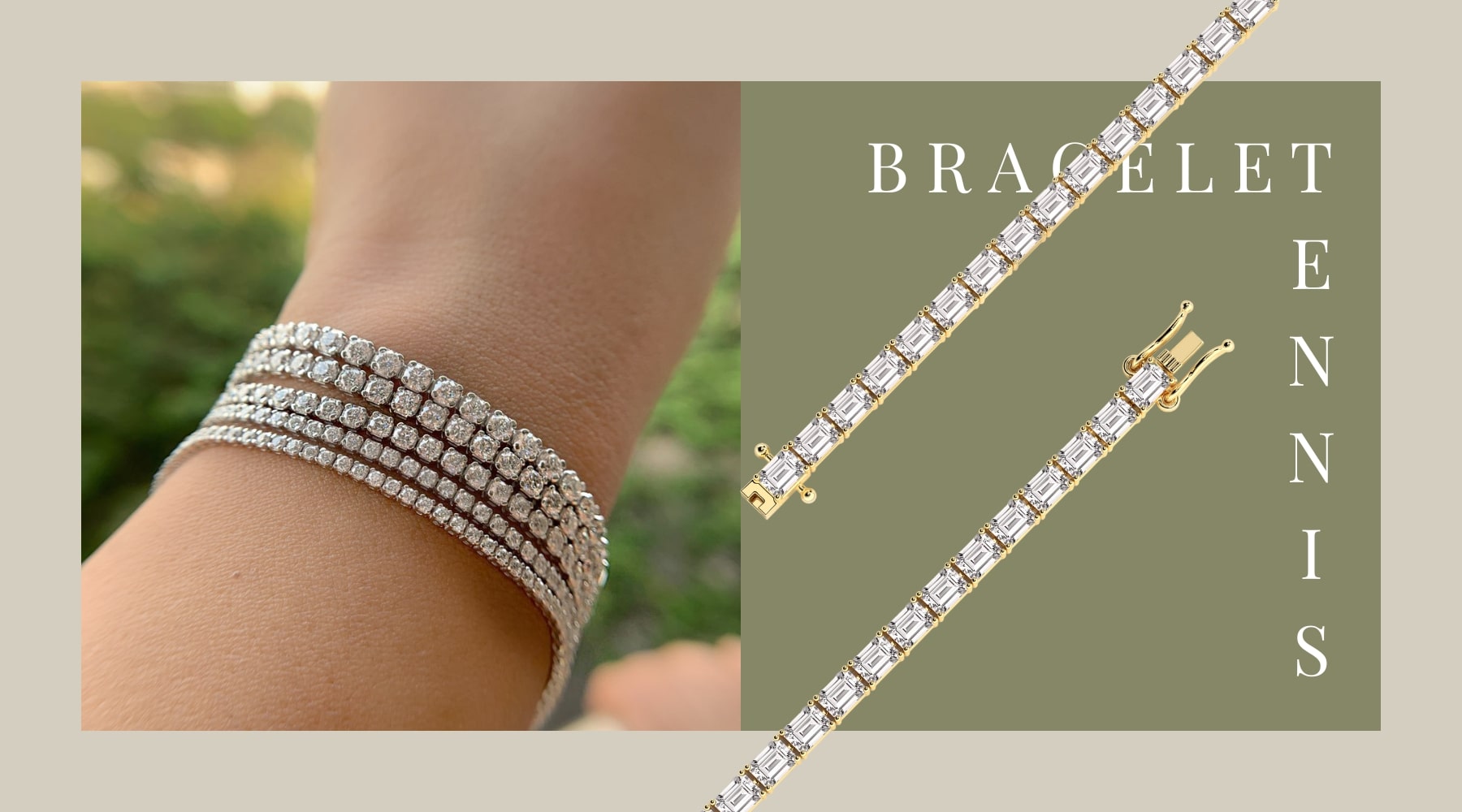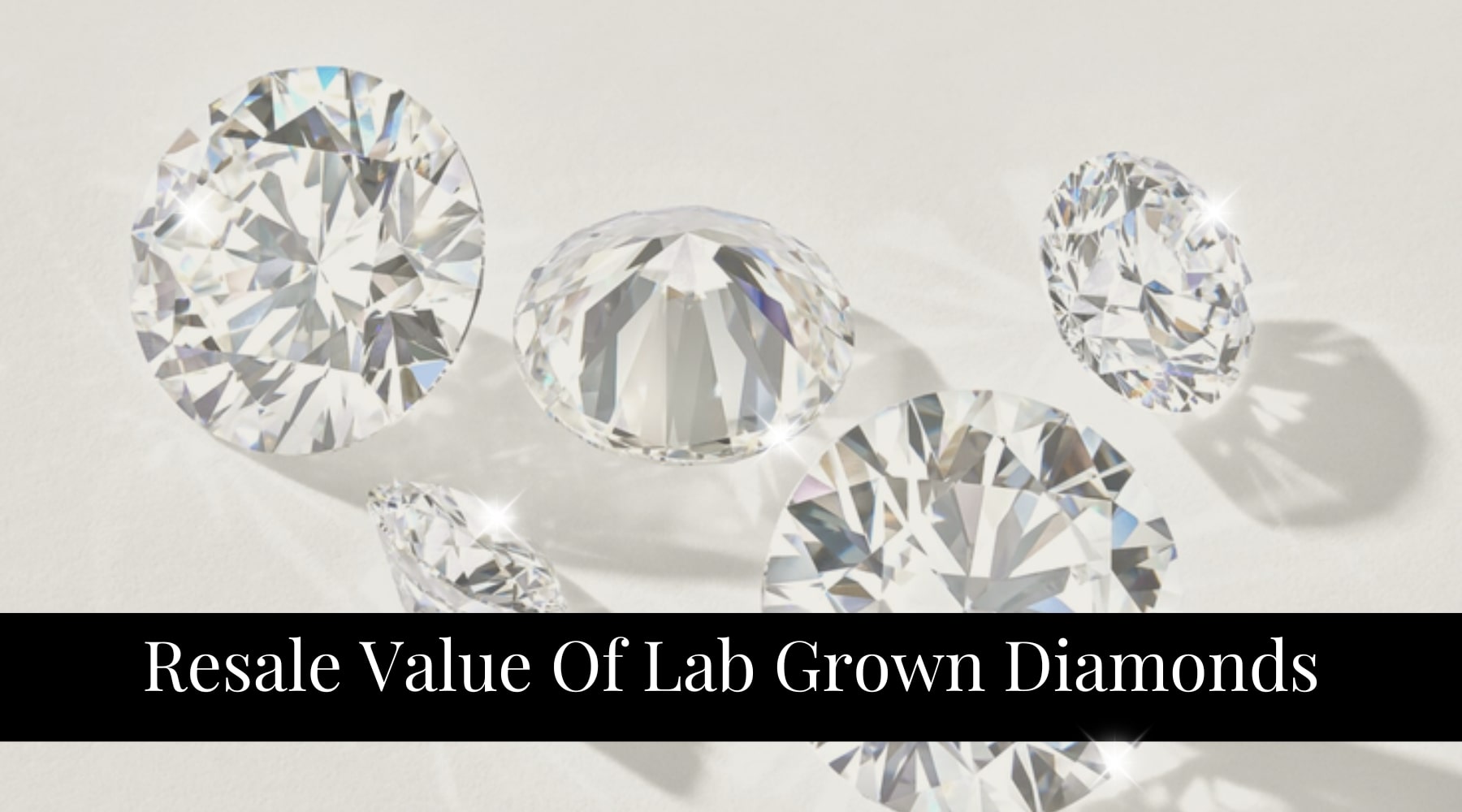
Do Lab Diamonds Have Resale Value?
Lab diamonds are also known as cultured diamonds. In fact, cultured diamonds are gradually gaining popularity as an easily accessible product and a popular choice when it comes to engagement rings and other fine jewelry. These diamonds are also cheaper, and they are perceived to be more sustainable and socially responsible than mined diamonds.
Despite their rising popularity, a common question remains: What is the resale value of lab-grown diamonds? It’s a crucial factor for many consumers, especially when it comes to choosing between synthetic diamonds and natural ones. Most of the common people invest a huge proportion of their income into purchasing this diamond jewelry. Therefore, whenever it comes to the resale of these, they definitely want them to hold their value. Now, it is important to examine lab-grown diamonds, their resale value, and how they are similar to or different from natural diamonds.
Key Takeaways
|
What Are Lab-Grown Diamonds?
Synthetic diamonds are man-made in a laboratory environment, and the process is similar to that followed by the formation of natural diamonds. These diamonds are manufactured from carbon as well and possess analogous physical, chemical, and optical characteristics to normal diamonds. The only difference is their origin: Lab-grown diamonds are cultivated artificially with the help of a lab, while natural diamonds are extracted from the ground, and their formation takes millions of years under high pressure and temperature on the Earth’s mantle.
Since lab-grown diamonds are chemically and visually indistinguishable from natural diamonds, other than having distinct inscriptions, jewelers may not be able to tell the difference without the use of special tools. Both of them have the same degree of spark and shine, making them equally attractive to the eyes of the common masses. If you wish to grab a shining piece of diamond jewelry, then these lab-grown diamonds can be an excellent choice.
Can You Tell the Difference Between Lab-Grown and Natural Diamonds?
In terms of appearance, the lab-grown diamond and the natural diamond resemble each other to a great extent. To some extent, even experienced jewelers must use specialized instruments to identify the origin of the diamond. Most diamond tests can be passed with lab-grown diamonds as they possess the same hardness, reflection of light, and fire found in natural diamonds. Currently, the Gemological Institute of America (GIA) grades lab-grown diamonds under the same standard as natural diamonds based on cut, color, clarity, and carat weight, among others. This means that lab-grown diamonds passed through certification just like natural diamonds, hence making them of the same quality.
Do Lab-Grown Diamonds Hold Their Value?
The difference in the possibility of selling used diamonds, as well as other PPGs derived from CBNs, also depends on various complicated factors. It is, however, important to note that both types of diamonds do have resale value, but it is a well-known fact that cheap lab-grown diamonds do not hold the same value as natural diamonds. This is due to the fact that lab diamonds cost less in terms of materials and time to create, and also, the demand for jewelry created from lab diamonds is comparatively lower.
Here are some key points to consider about the resale value of lab-grown diamonds:
Lower Initial Cost: These diamonds are now priced at 30-40% less than the natural diamonds of similar carat weight. For instance, a quality artificial diamond that can cost ten thousand dollars will cost twenty thousand US dollars if they are natural diamonds of the same quality.
Resale Value: It is important to note that lab-grown diamonds normally have a lower resale value as compared to natural stones. When re-selling a lab-grown diamond, one can get back 25 % to 50 % of the initial amount that he paid. Natural diamonds may be given slightly more value, but generally, they also sell for roughly between 50% and 60% of their initial price. However, with lab-grown and natural diamonds, their resale value is determined by aspects like quality, carat size, and market trends at the time of resale.
Market Demand: Synthetic diamonds are becoming significantly more popular, which producers of lab-grown diamonds did not deny; however, the market for reselling these stones is not as large as the market for natural diamonds. There are jewelers who do not repurchase lab-grown diamonds, but there are counterparts who do this. This is because, as more demand is attracted to cultured diamonds, more resales might be encouraged.
Why Do Lab-Grown Diamonds Have Lower Resale Value?
The major factor that causes lab-grown diamonds to be cheaper than mined diamonds in terms of resale value is their supply. Due to the fact that laboratory-grown diamonds can be manufactured in a laboratory in a few weeks, they lack the scarcity or the perceived value of natural diamonds. Natural diamonds are limited in occurrence and are extracted through tedious mining, making them costlier and more luxurious.
Other than that, manmade diamonds are cheaper because it is cheaper to produce manmade diamonds than it is to mine natural diamonds. This price difference is reflected in the resale value. If a jeweler can make more lab-grown diamonds easily, they won’t pay a high price to buy one back from a customer.
How Does Lab-Grown Diamond Resale Compare to Natural Diamonds?
Lab-grown diamonds usually have a lower resale value, but natural diamonds don’t always hold their full value, either. Many natural diamonds lose value once they leave the store. Only rare natural diamonds, like very large or colorful ones, may keep their value.
For example, if you buy a $20,000 natural diamond, you might only get $10,000 if you resell it. If you buy a $10,000 lab-grown diamond, you might get $5,000 when reselling it. In both cases, you could lose about 50% of your money. Lab-grown diamonds tend to lose a higher percentage because they cost less to start with.
|
Item Name |
Sale Price (USD) |
|
From $727.00 |
|
|
From $920.00 |
|
|
From $607.00 |
|
|
From $484.00 |
|
|
From $649.00 |
|
|
From $640.00 |
|
|
$1,239.00 |
|
|
From $569.00 |
|
|
From $458.00 |
|
|
From $420.00 |
|
|
From $1,461.00 |
Where Can You Resell Lab-Grown Diamonds?
The resale market for lab-grown diamonds is smaller, but there are places to sell them. Some companies, like Ada Diamonds, will buy back lab-grown diamonds. Online sites like worthy.com and idonowidont.com also let people sell lab-grown diamonds.
Keep in mind the resale price will depend on the diamond's quality, size, and how much people want it.
Tips for Reselling Lab-Grown Diamonds
- Buy High-Quality Diamonds: Better quality diamonds will be easier to resell for a good price.
- Get Certified Diamonds: Make sure your diamond is certified by a respected gem lab, like the GIA.
- Keep Documentation: Keep the certificate, receipt, and packaging. These can help when reselling.
Conclusion
Lab-grown diamonds do have resale value, but it's usually lower than natural diamonds. You can expect to get 25% to 50% of what you paid for a lab-grown diamond when selling it. Even though they don’t hold as much value, lab-grown diamonds are cheaper to buy, more ethical, and still beautiful.
Whether you choose a lab-grown or natural diamond depends on what you care about. If resale value matters to you, it's good to know the market for both types of diamonds. But for many, the low cost and ethical benefits of lab-grown diamonds make them a great choice, even with a lower resale value.
FAQs
1. Do lab-grown diamonds have resale value?
Yes, but it's usually less than natural diamonds.
2. How much can I get if I resell a lab-grown diamond?
You can get about 25% to 50% of what you paid.
3. Where can I sell a lab-grown diamond?
You can sell it to some jewelers or online platforms like worthy.com.

